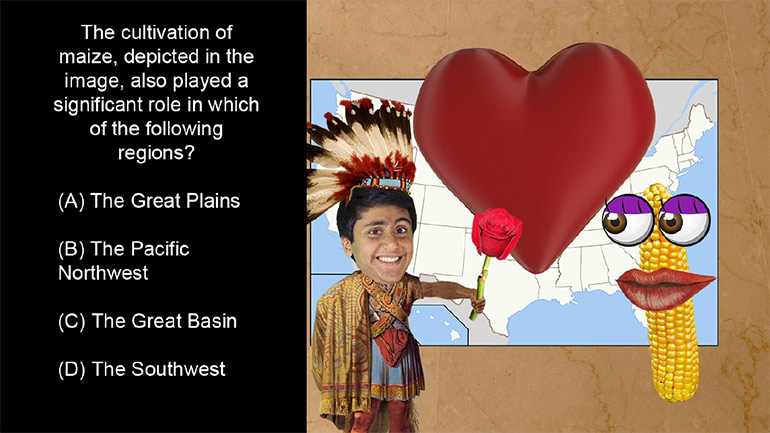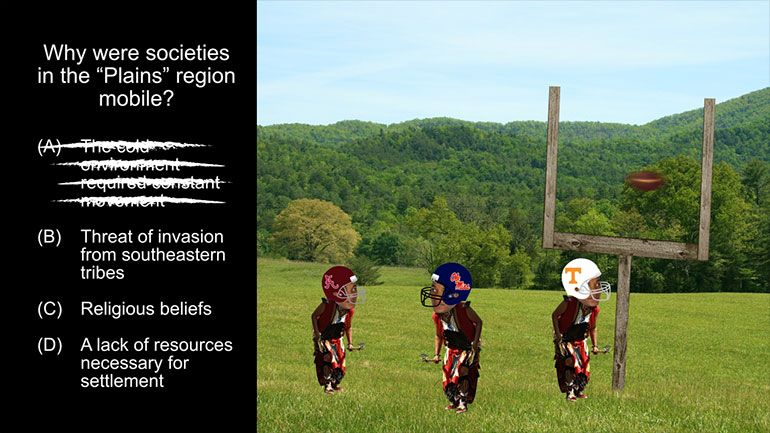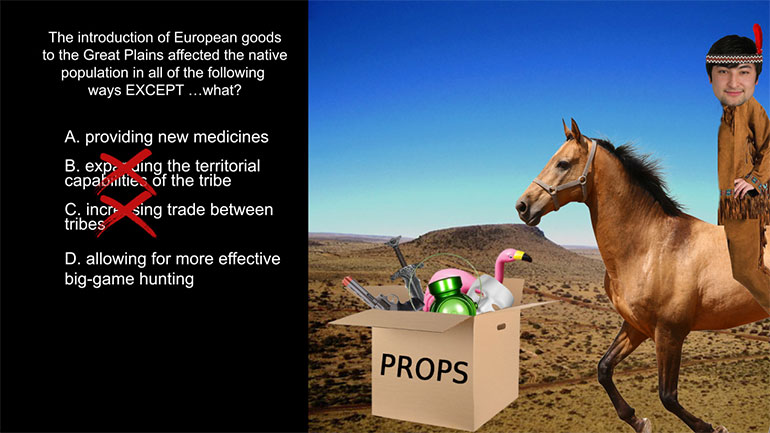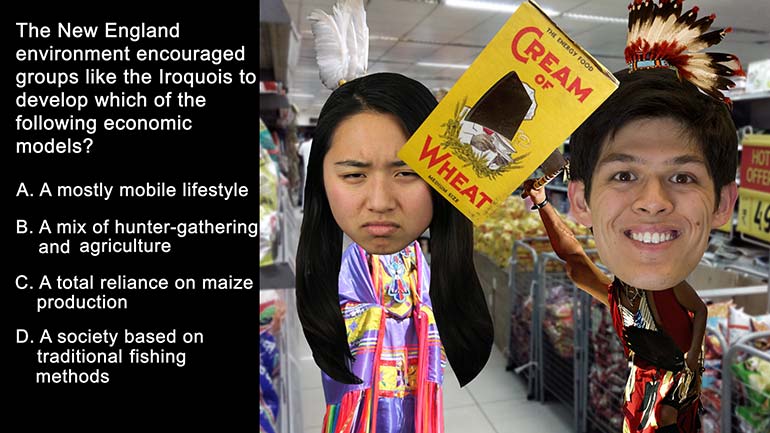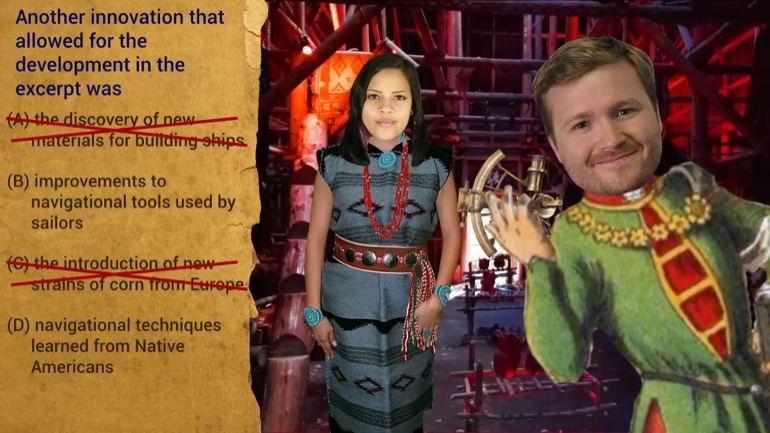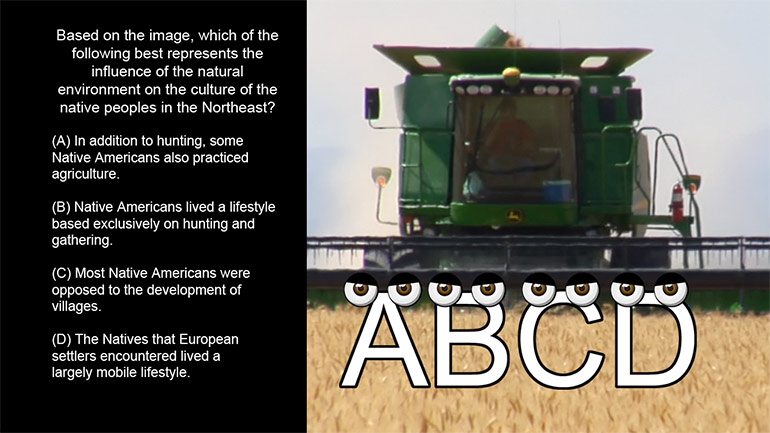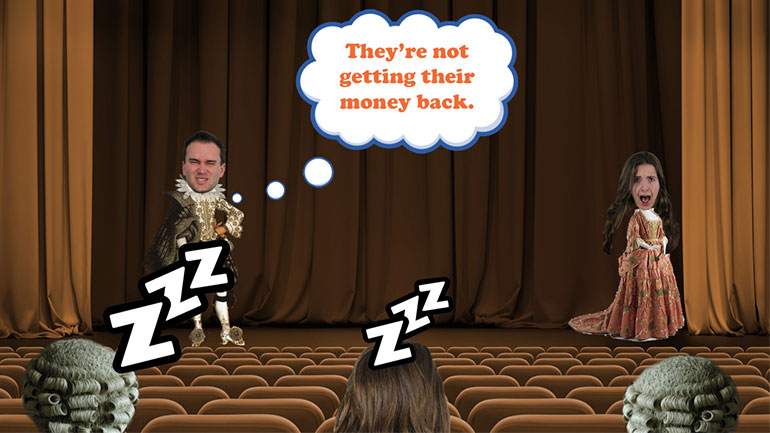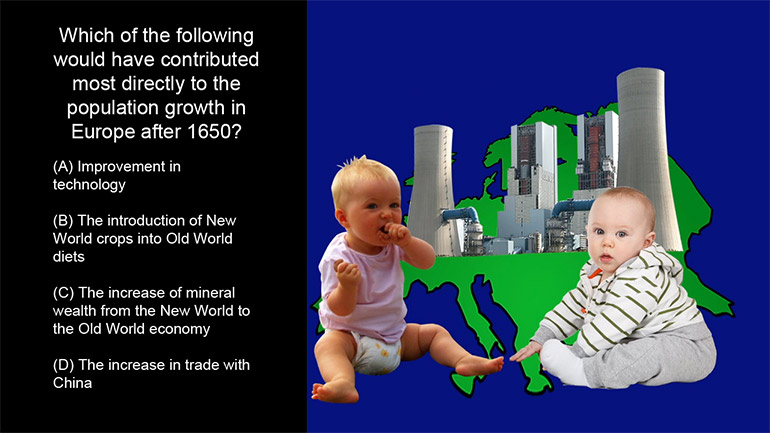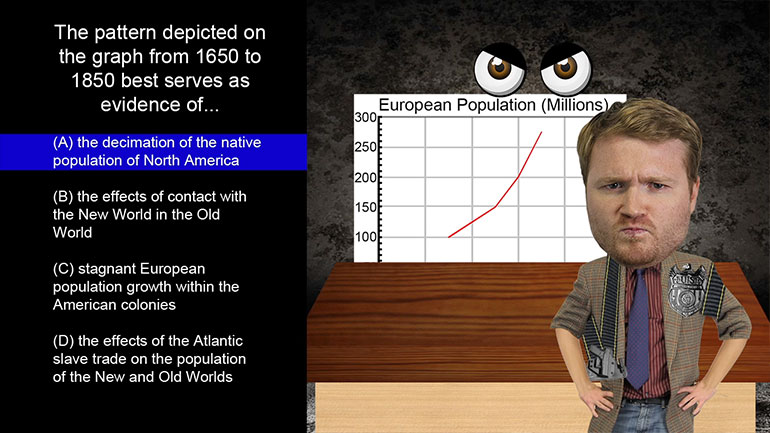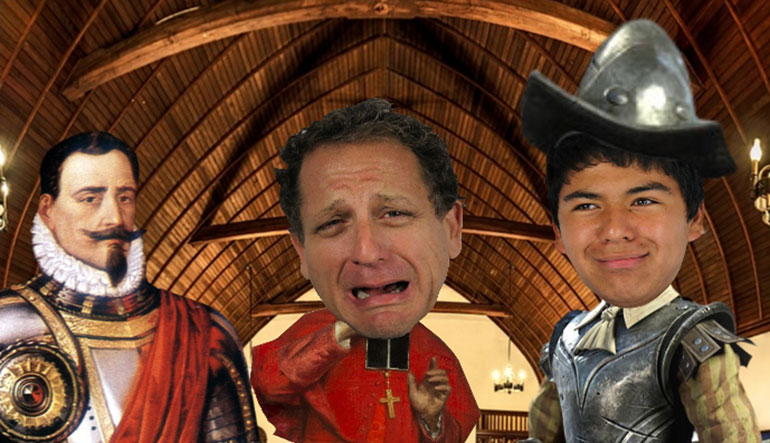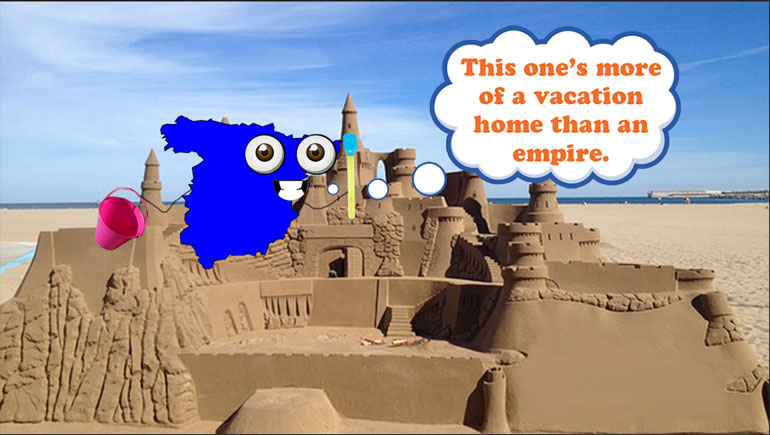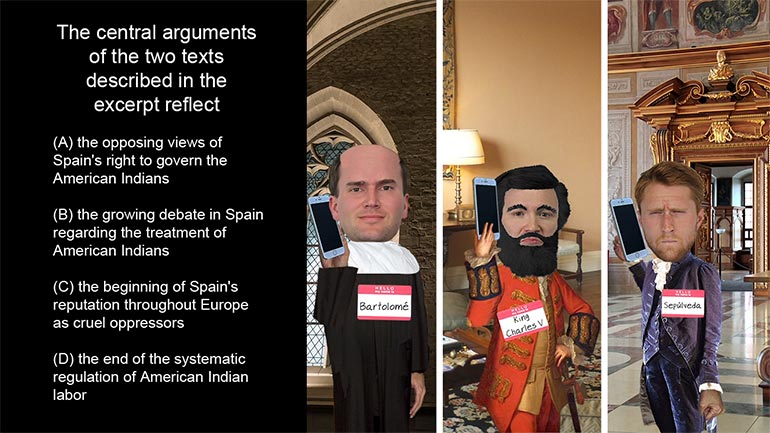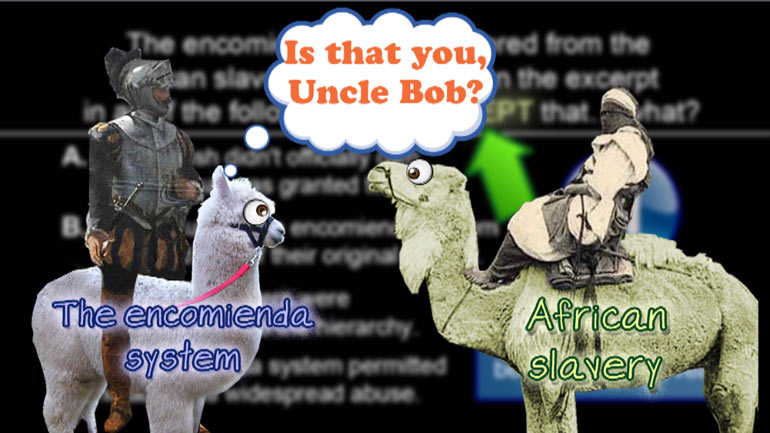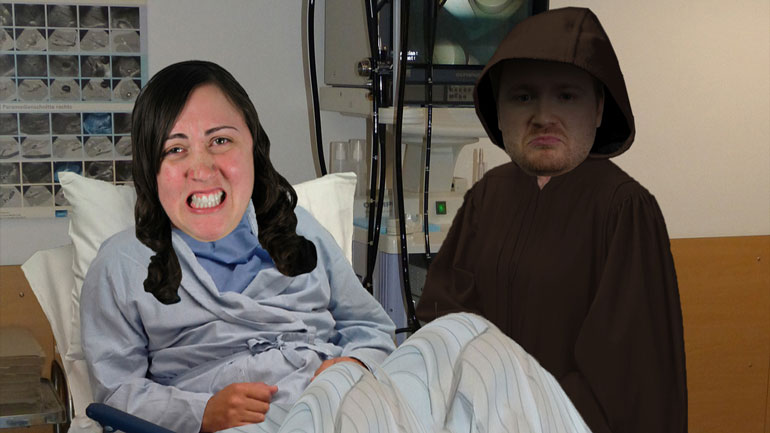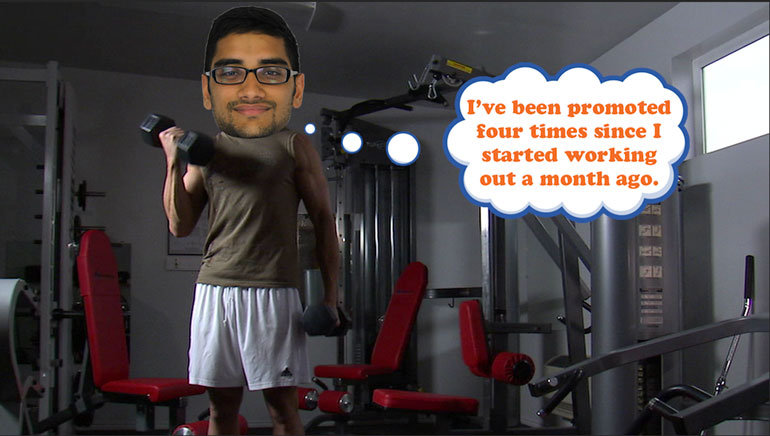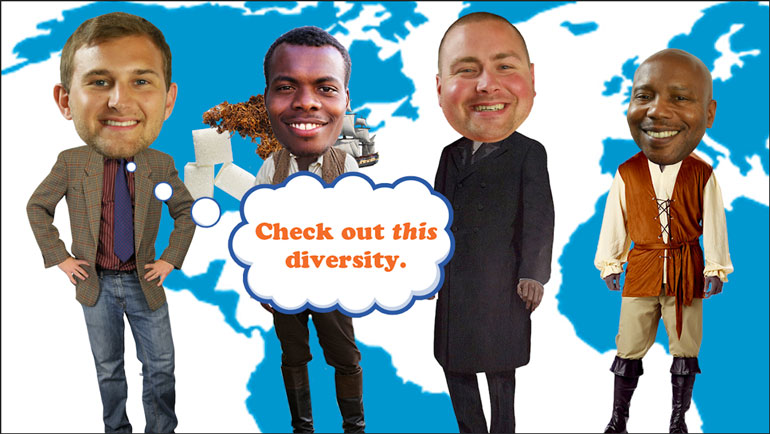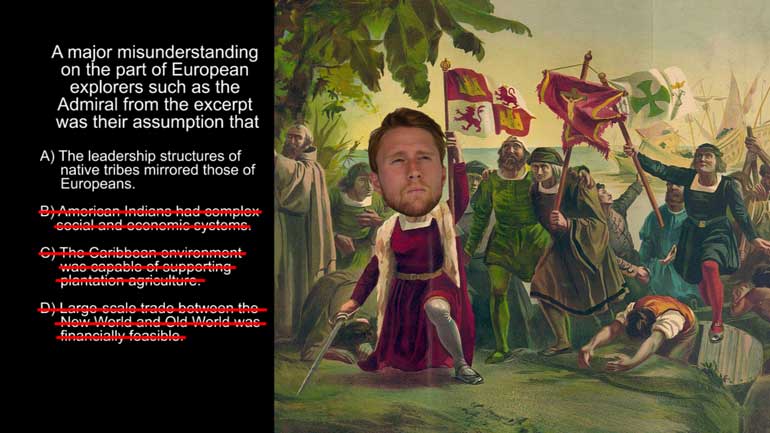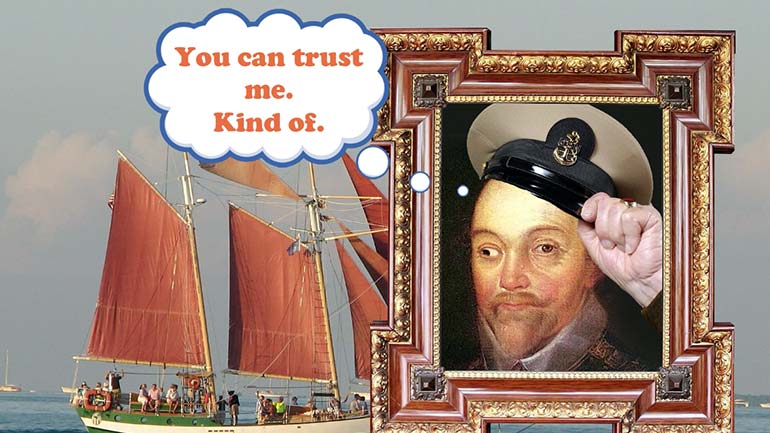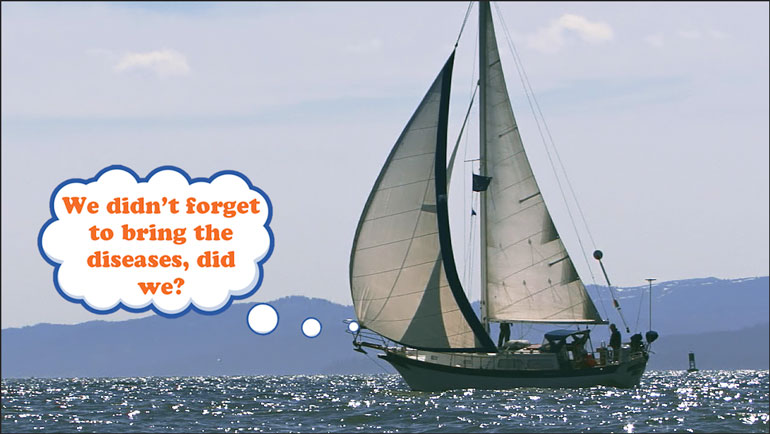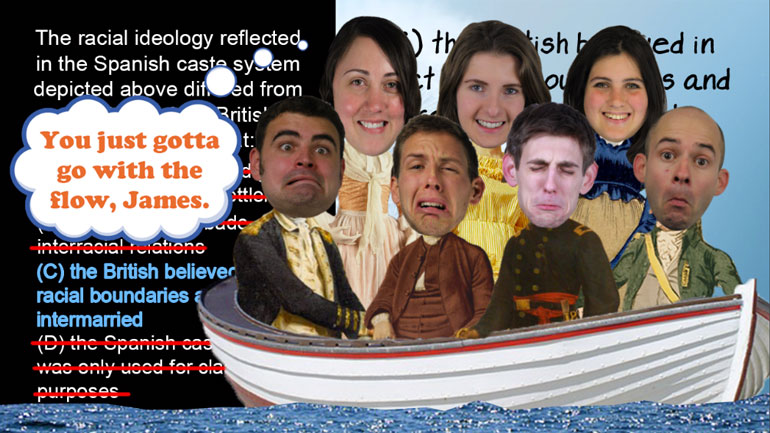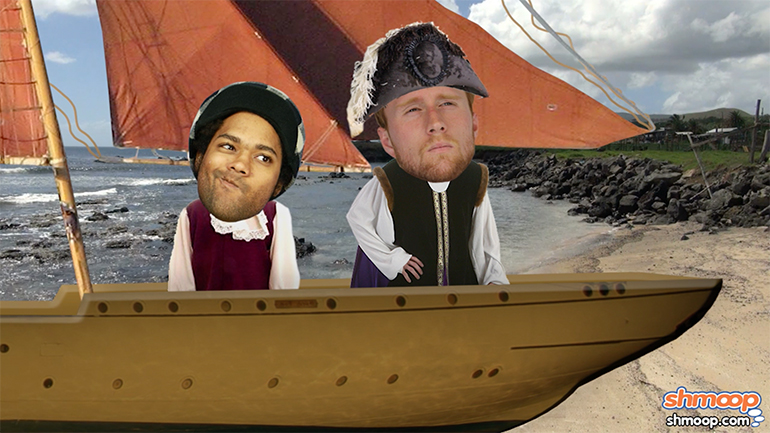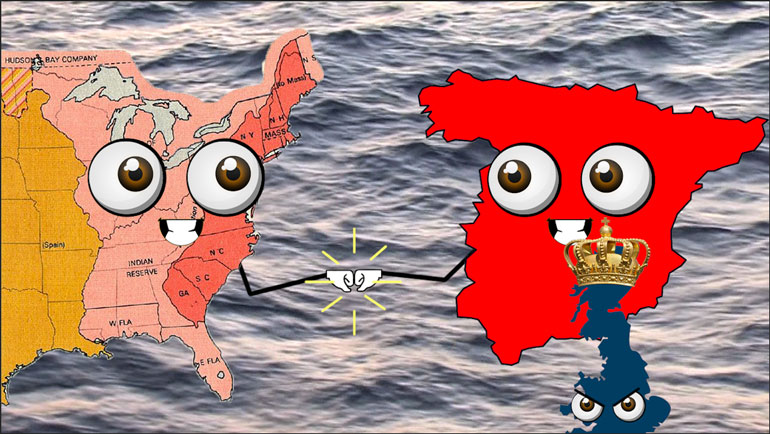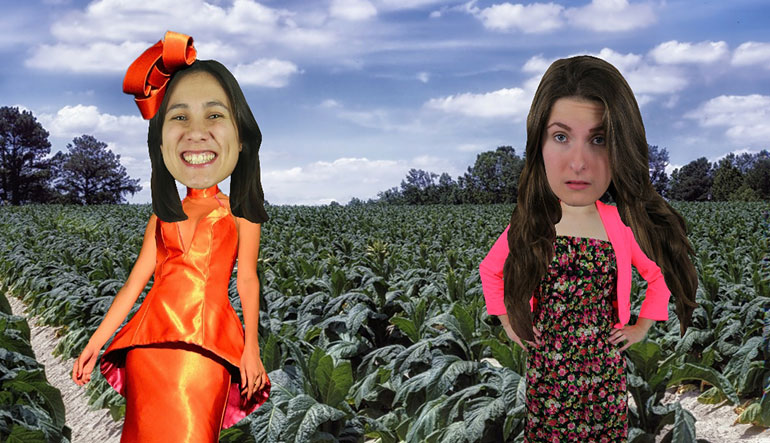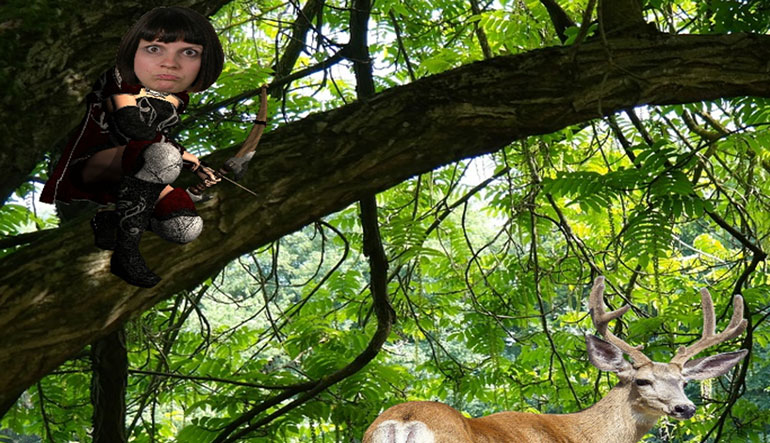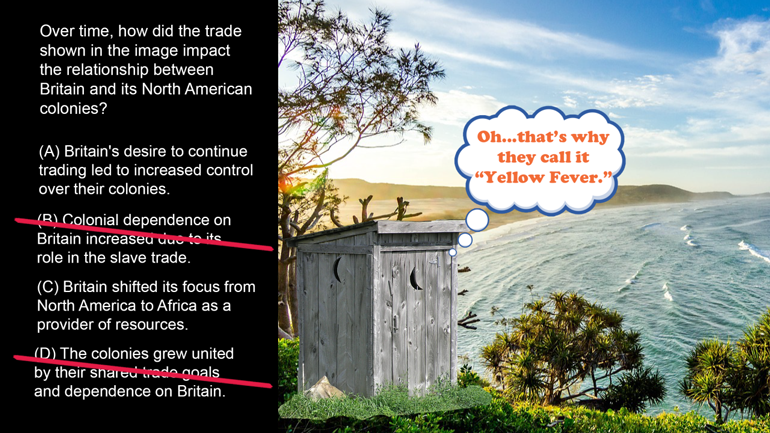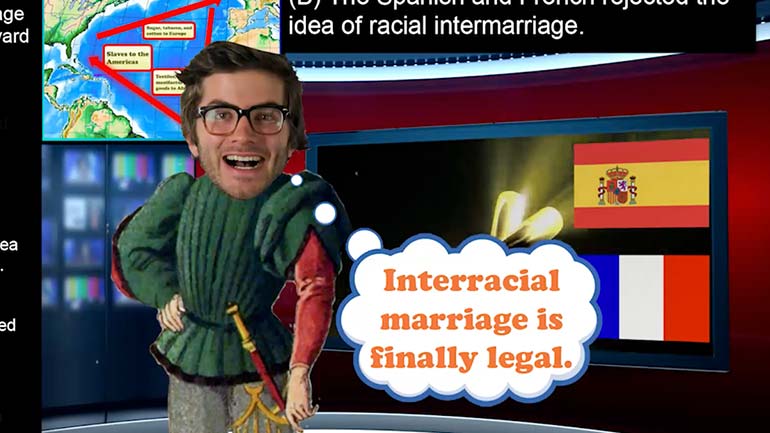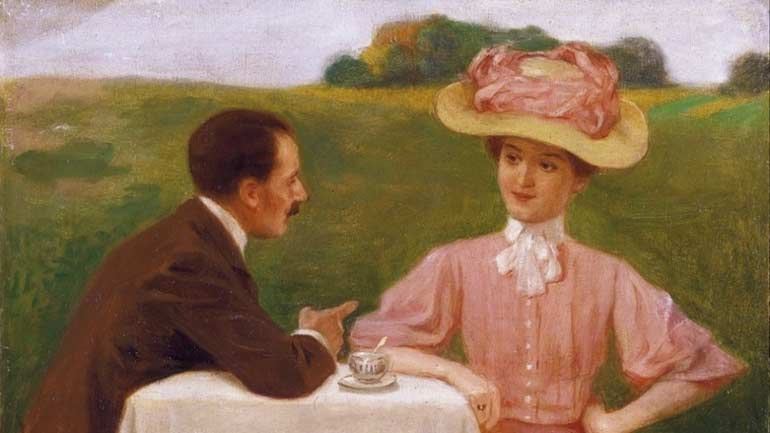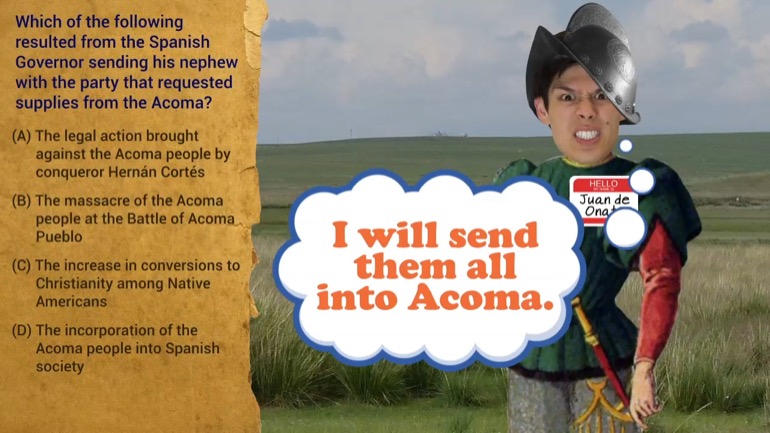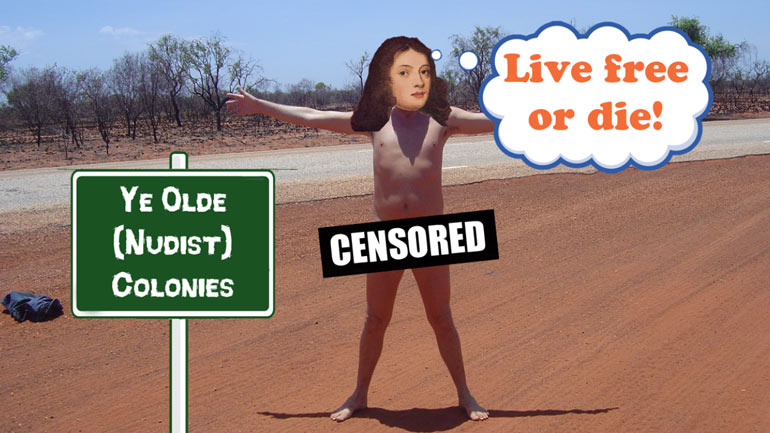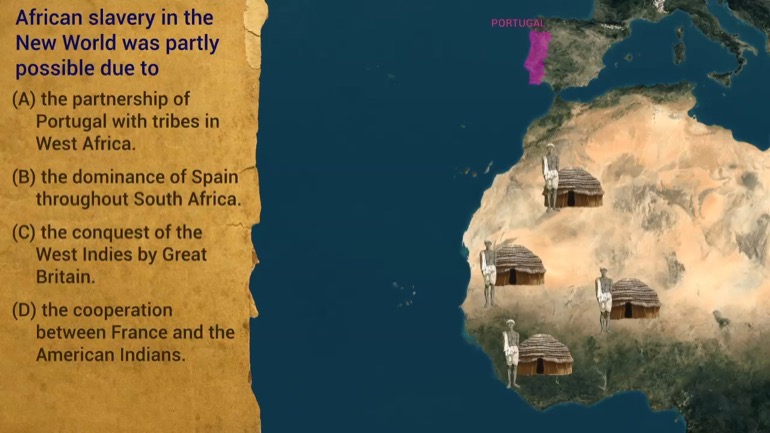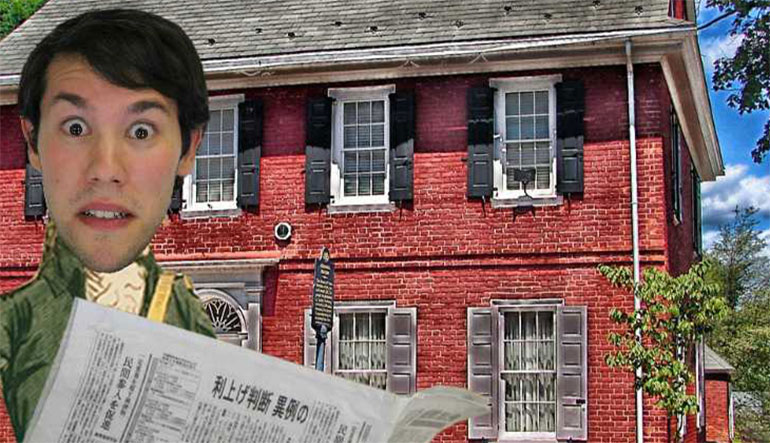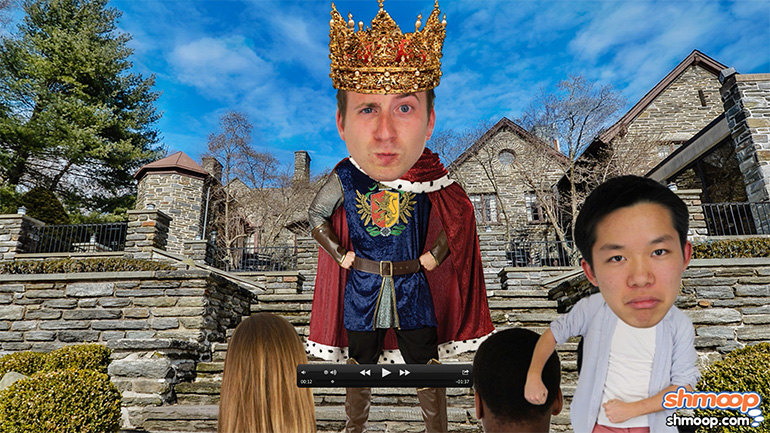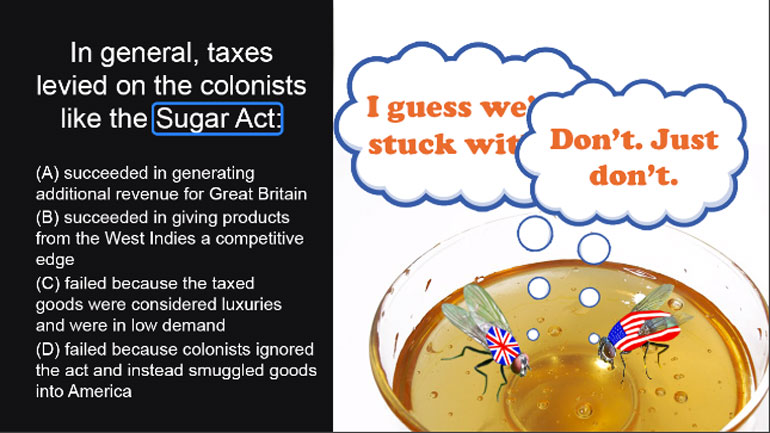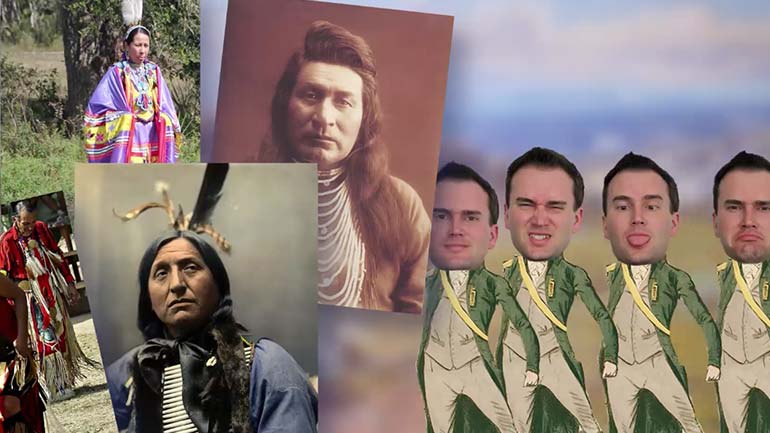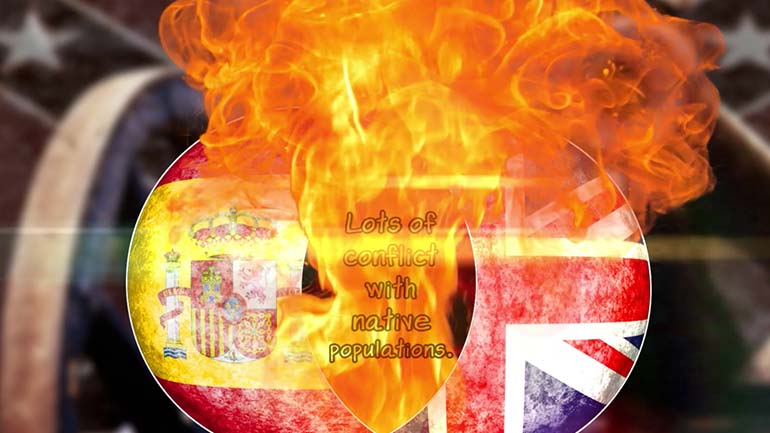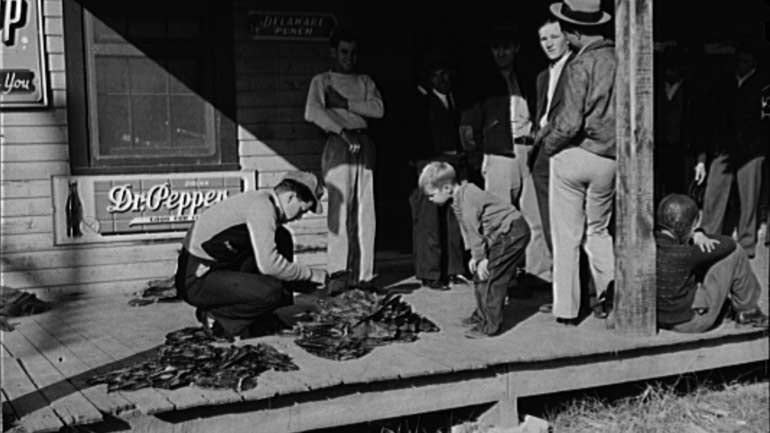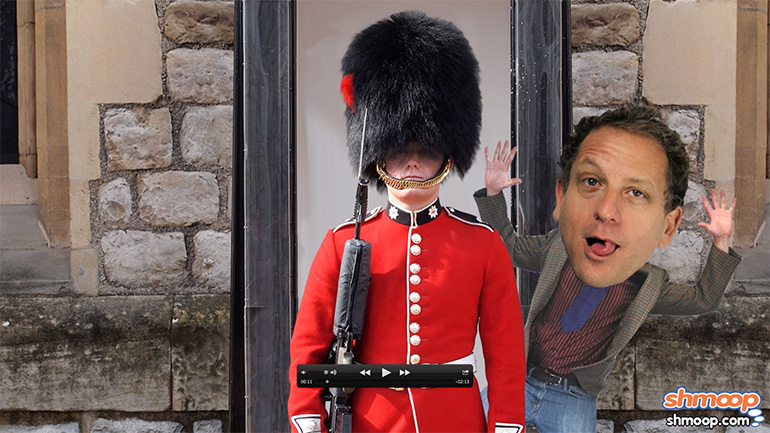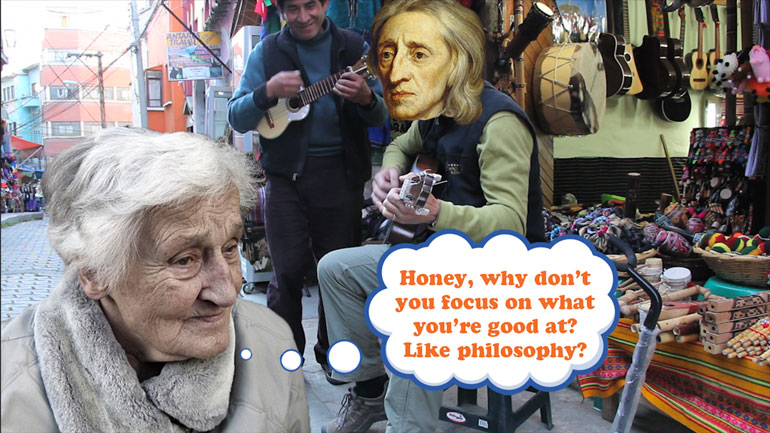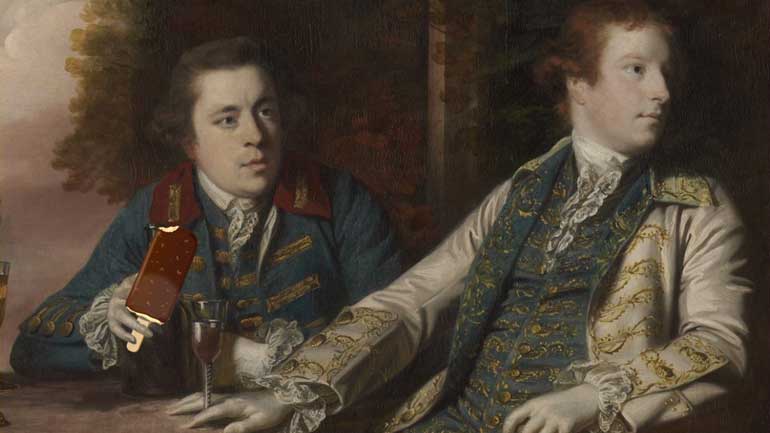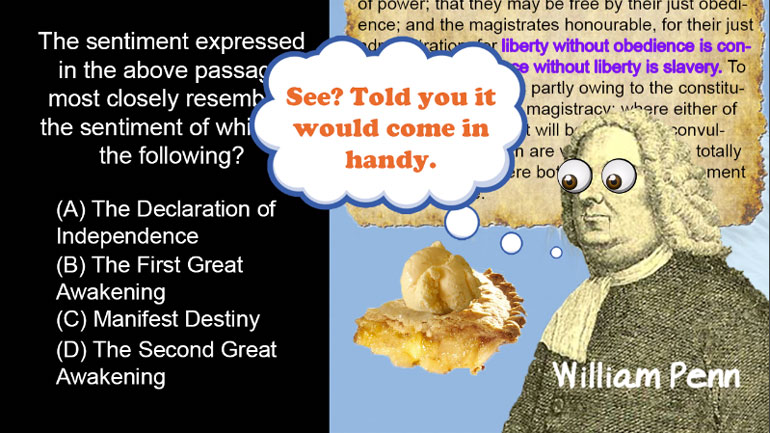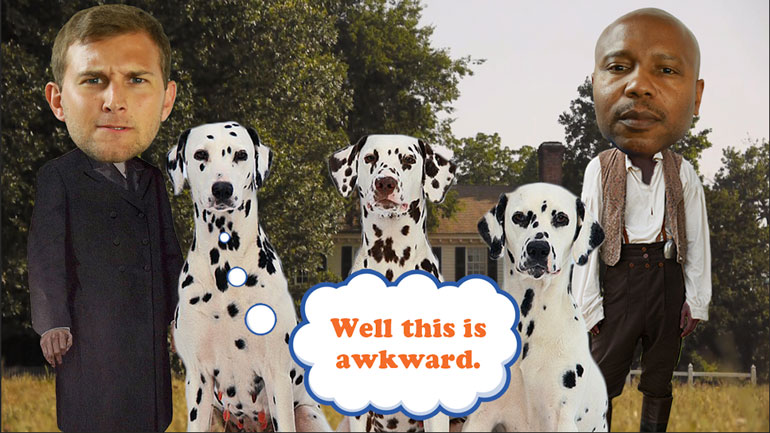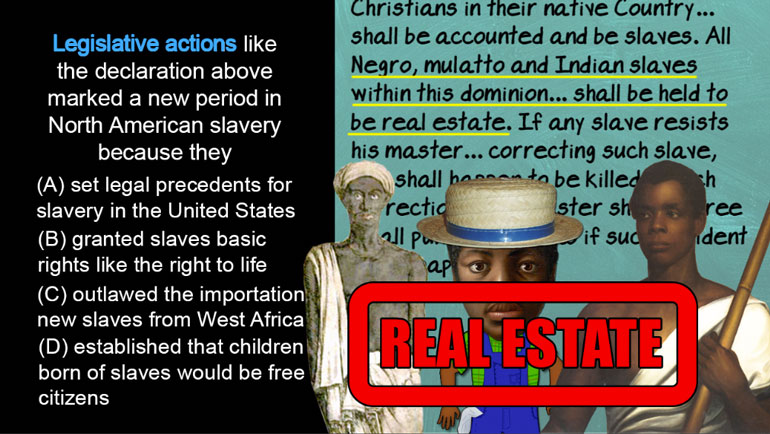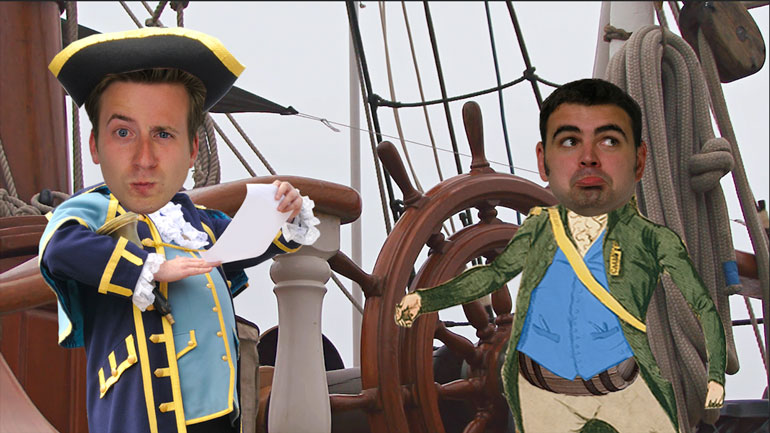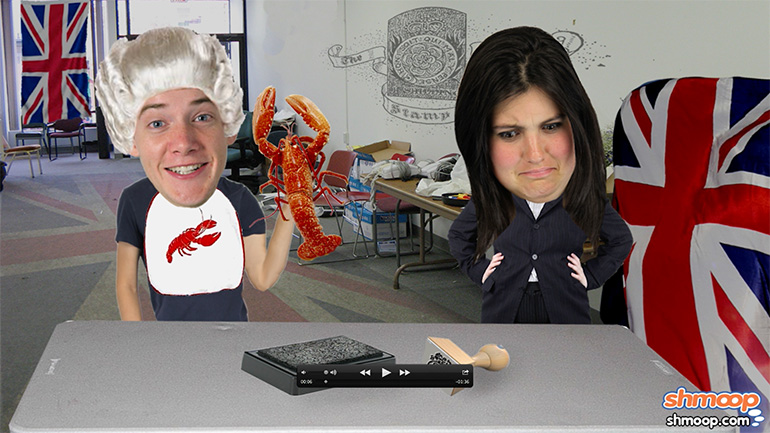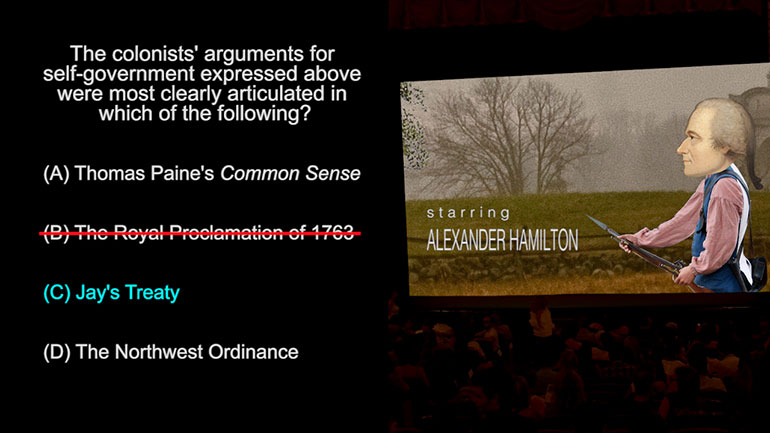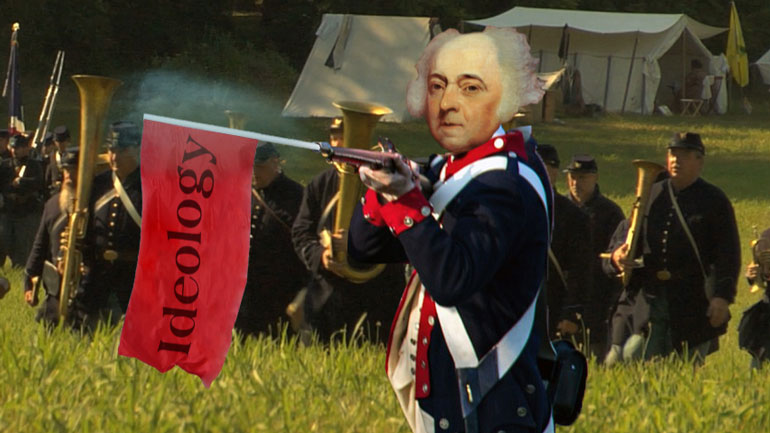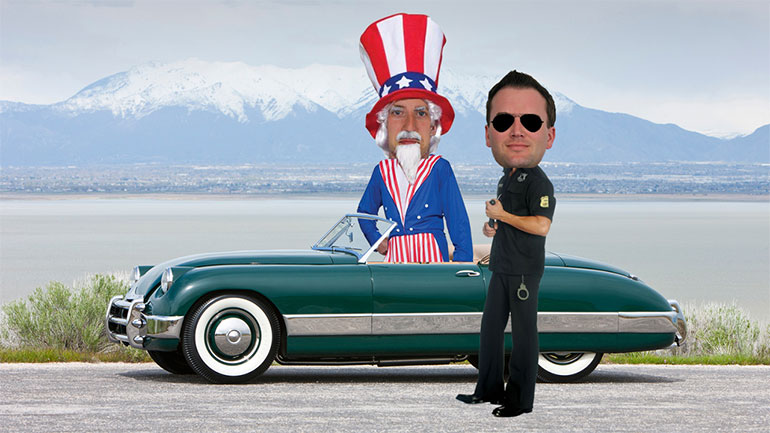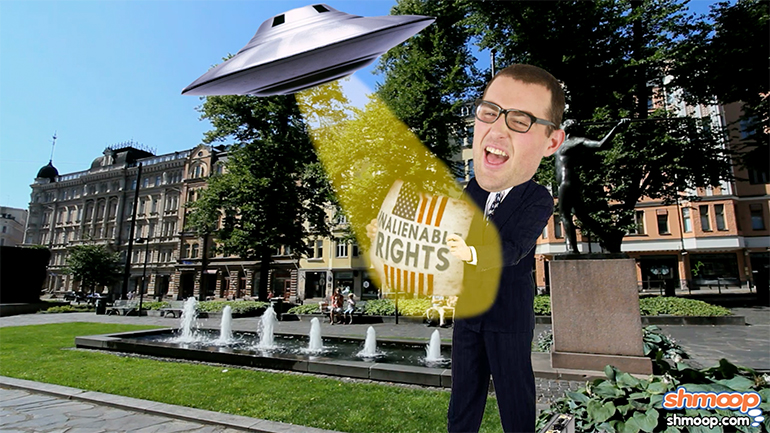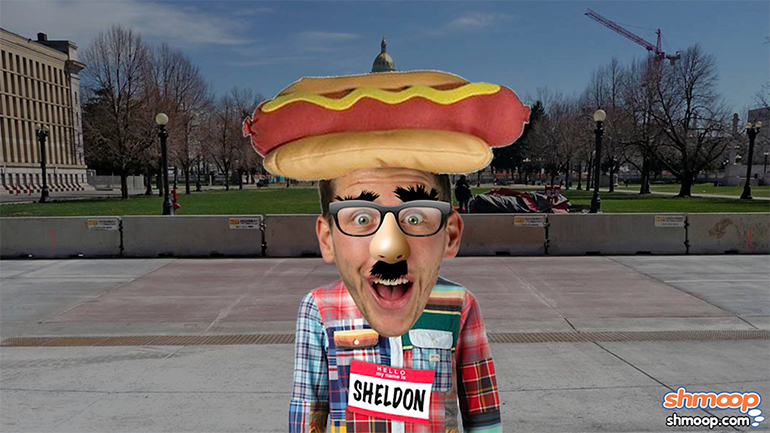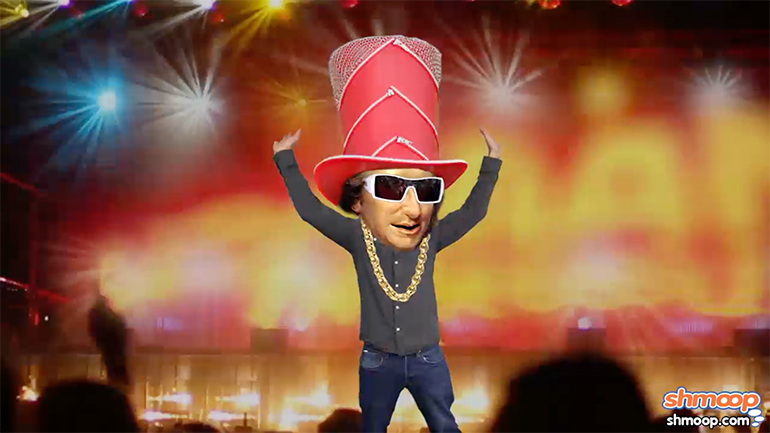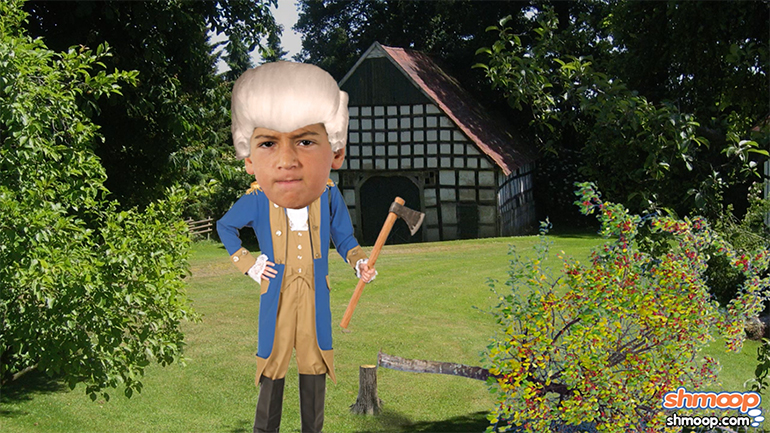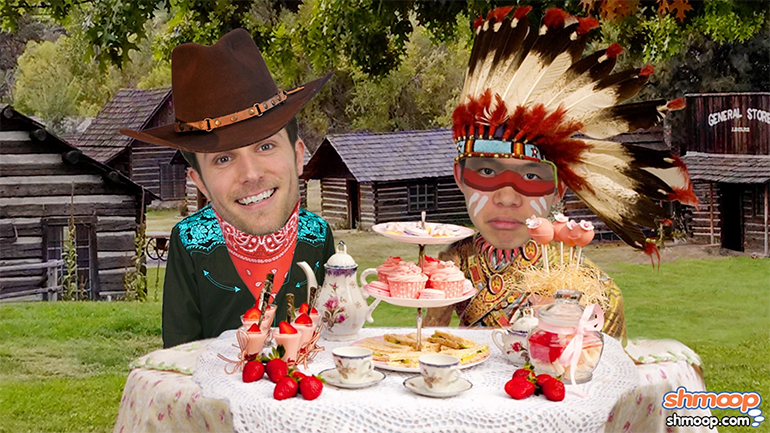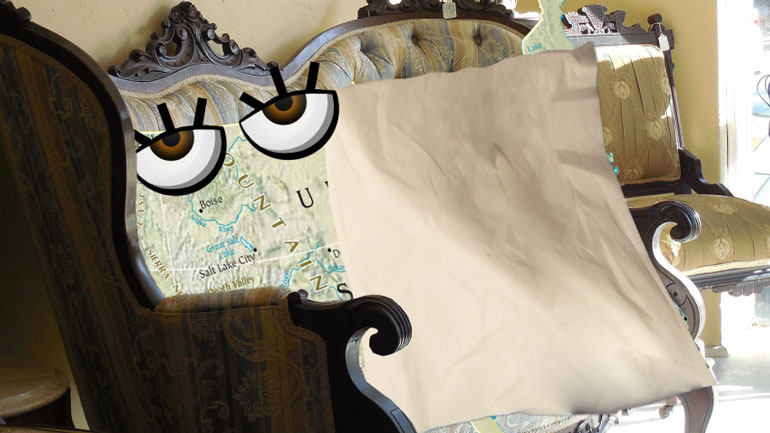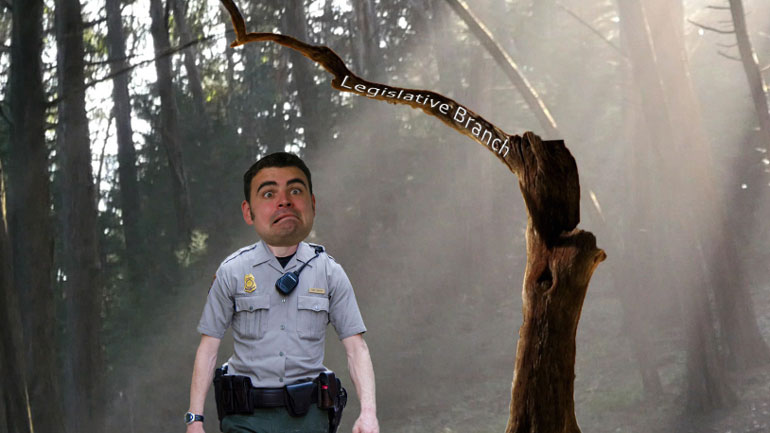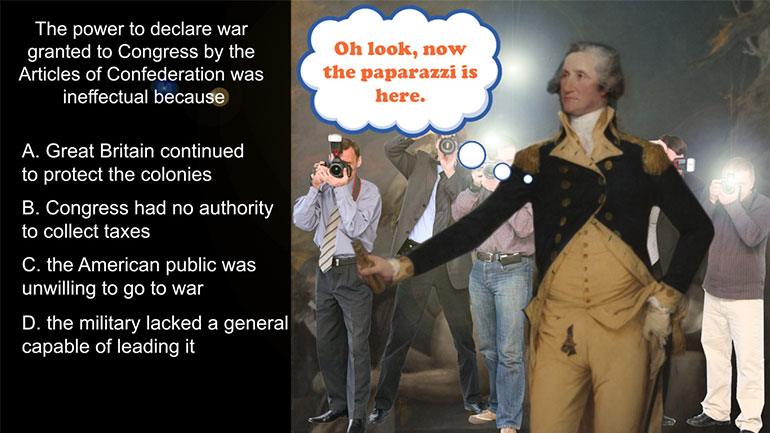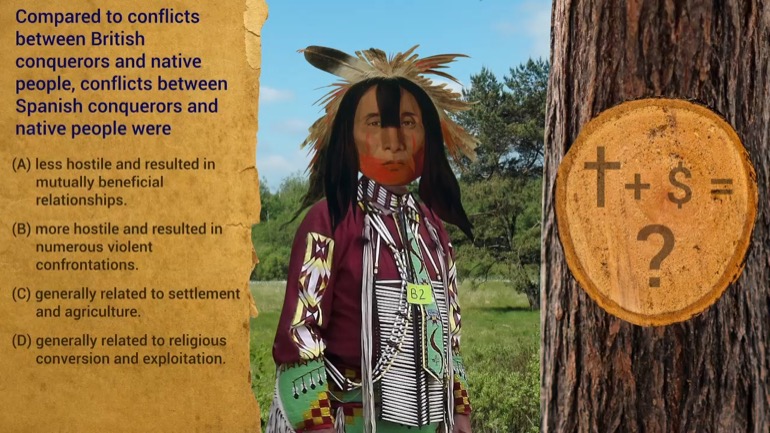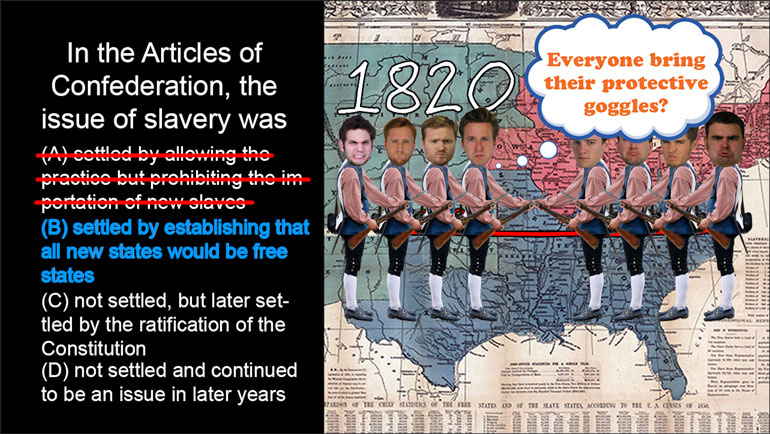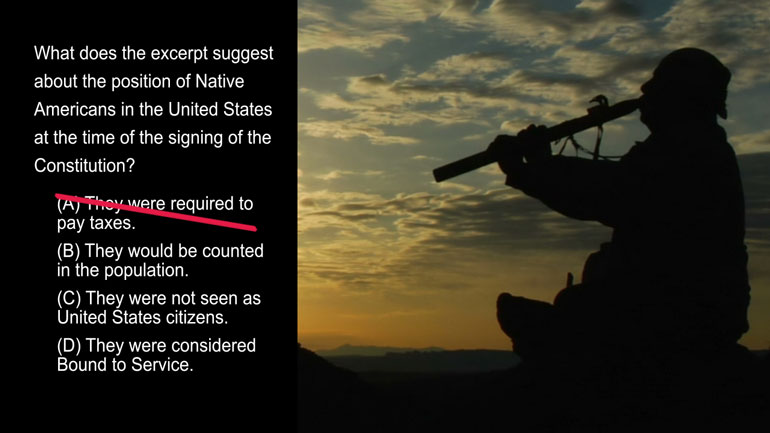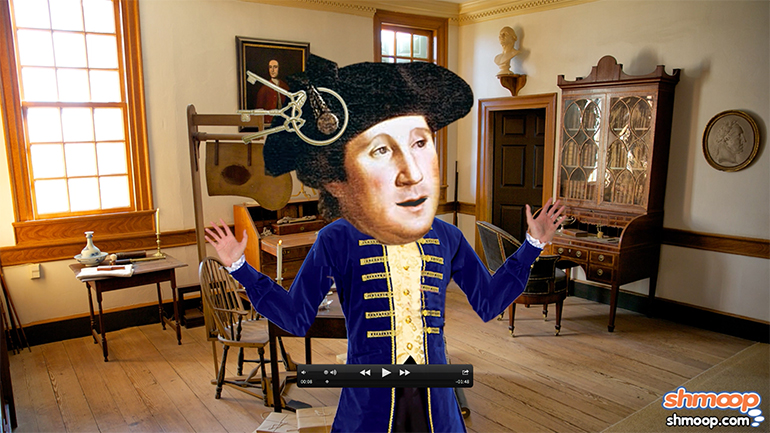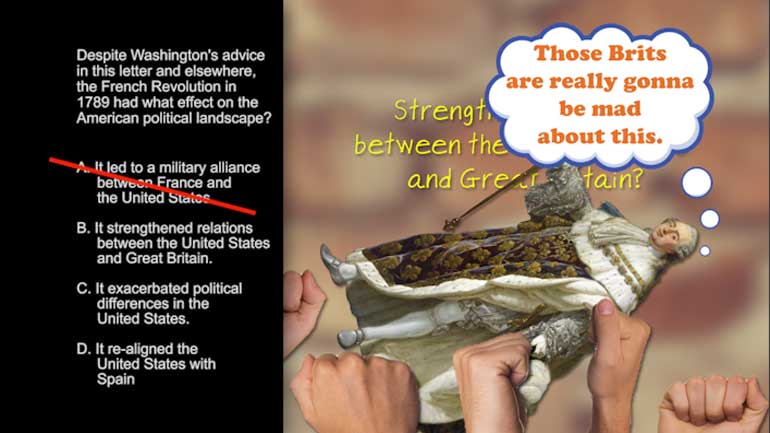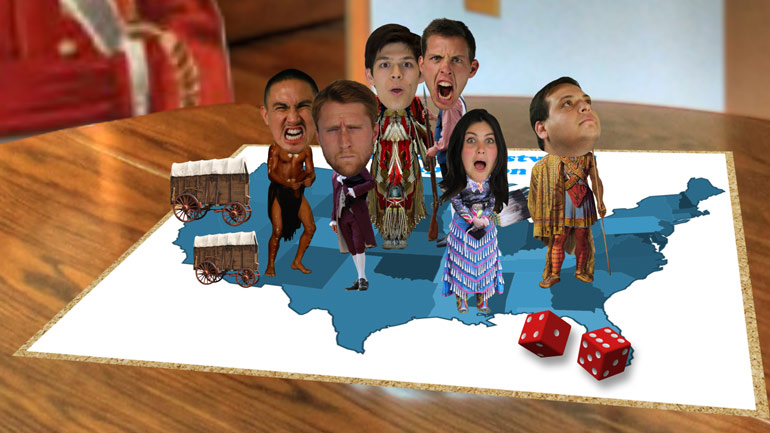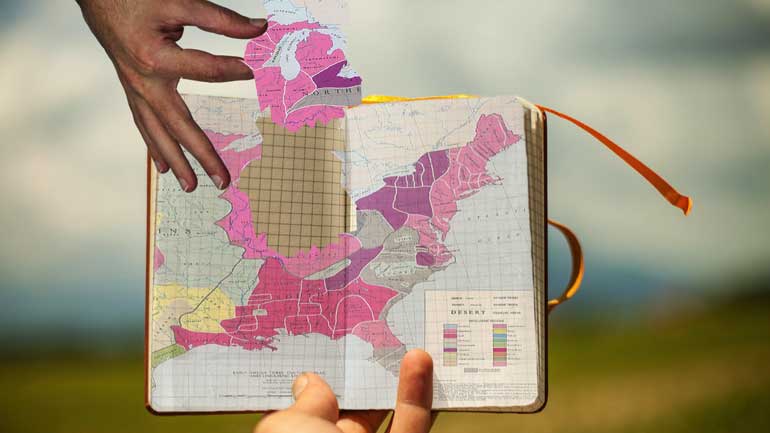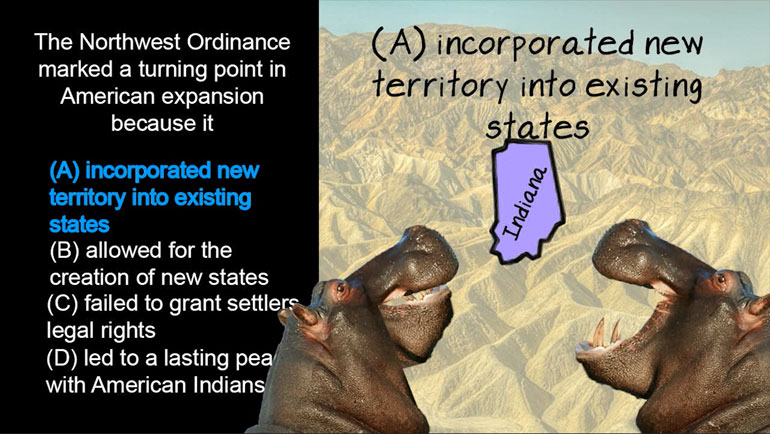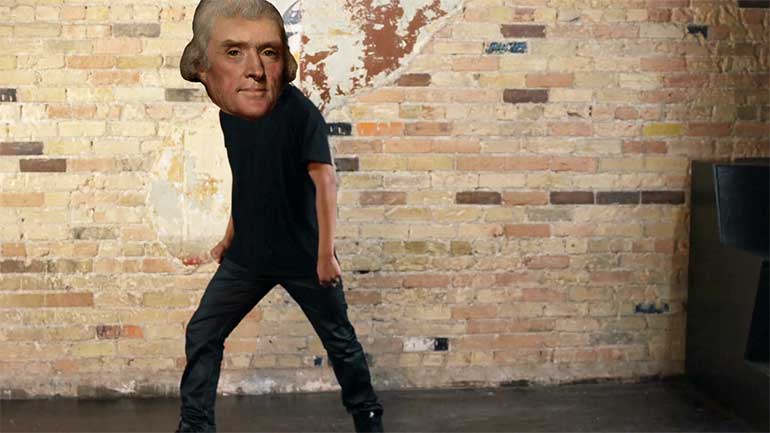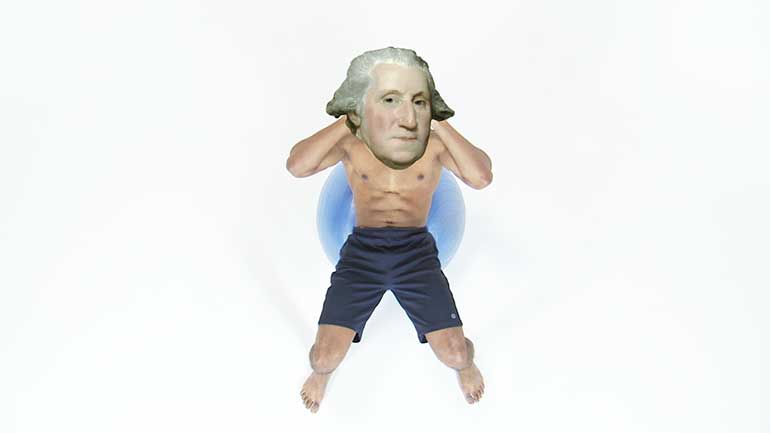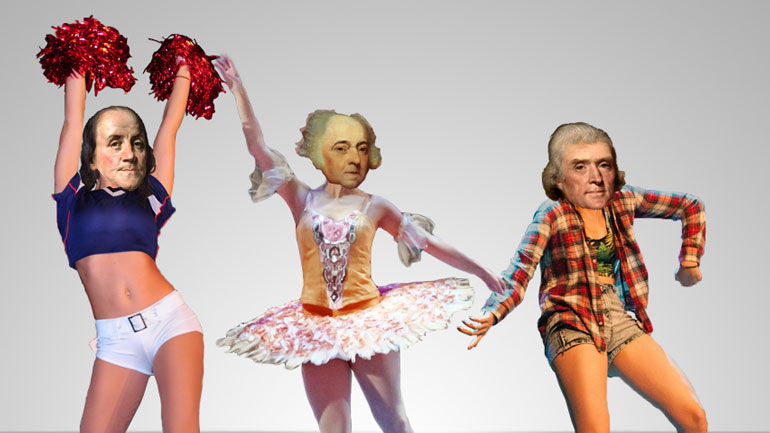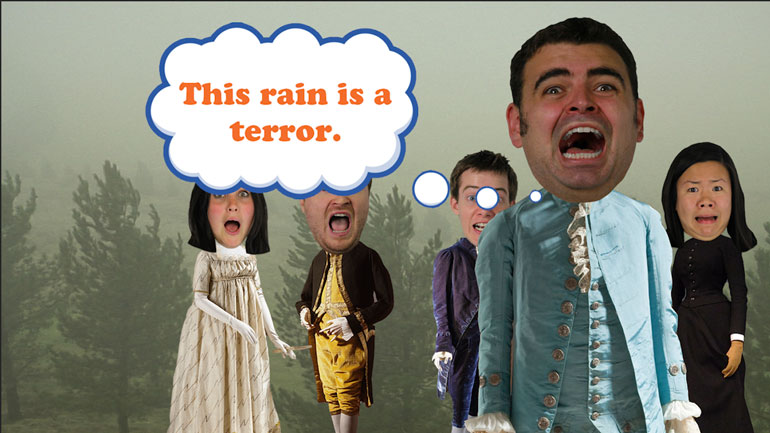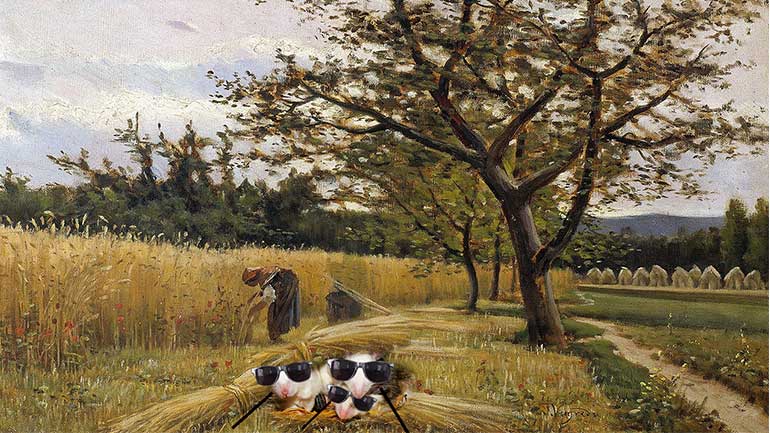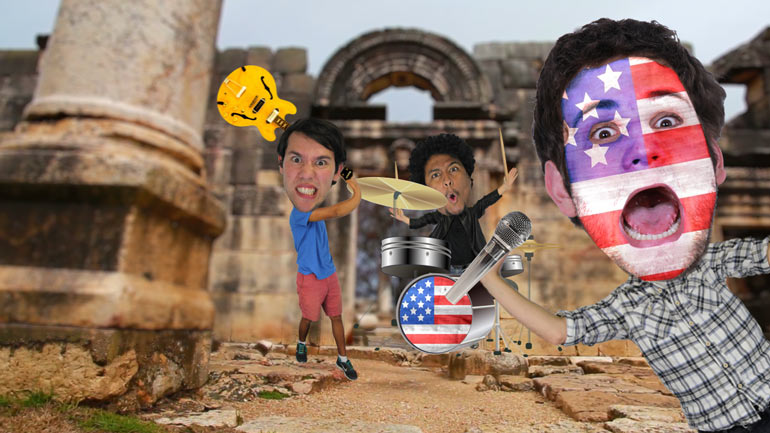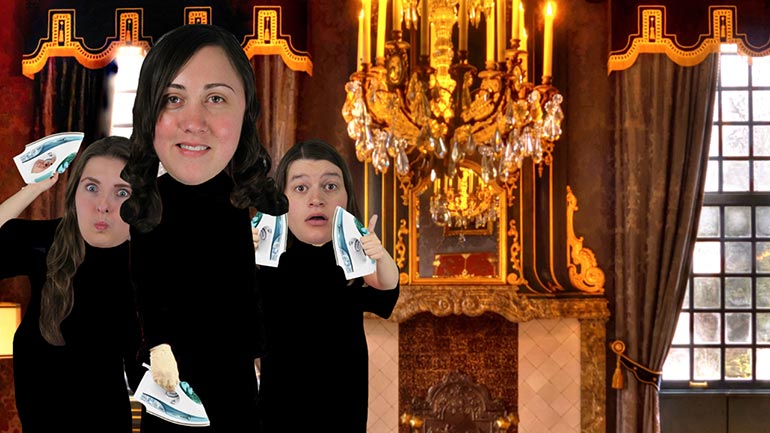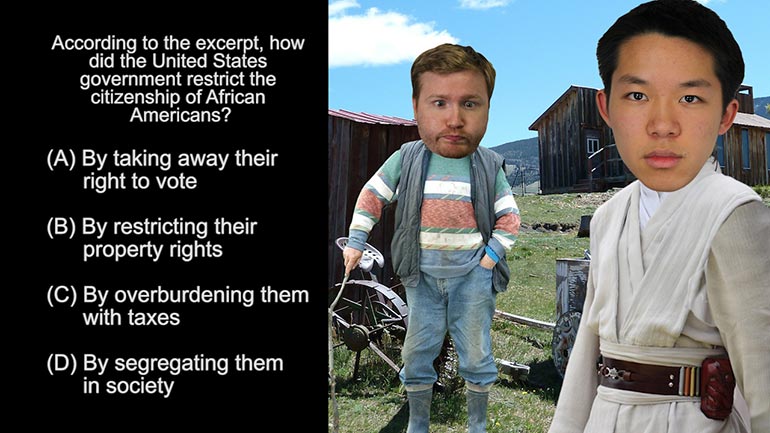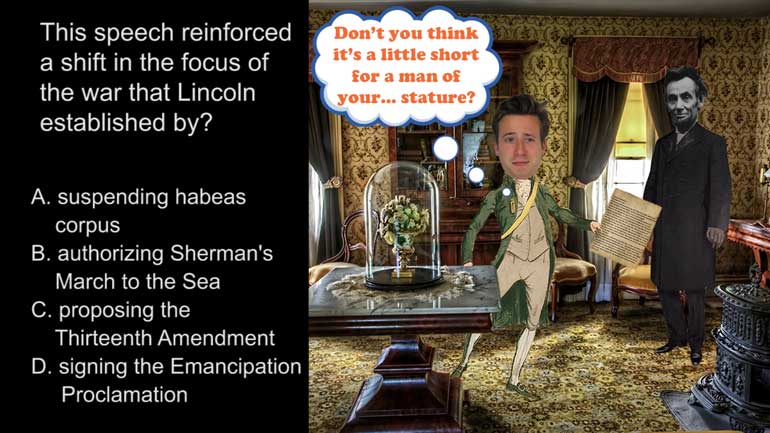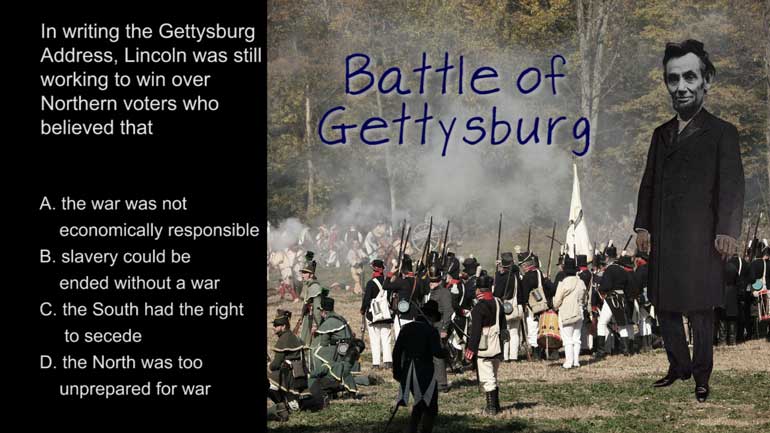ShmoopTube
Where Monty Python meets your 10th grade teacher.
Search Thousands of Shmoop Videos
AP U.S. History Videos 273 videos
Today's lesson: The Civil War. A war may be civil, but it's never pretty. Well, aside from the Pretty Pink Fairy Wars of '93...but no one seems to...
AP U.S. History Period 1: 1491-1607 Drill 3, Problem 2. The cultivation of maize, depicted in the image, also played a significant role in which of...
AP U.S. History Exam 2.2. Prior to European contact, why was it necessary for the societies of the "Plains" region on the map to live a mobile life...
AP U.S. History 2.4 Period 3: 1789-1800 228 Views
Share It!
Description:
AP U.S. History 2.4 Period 3: 1789-1800. Colonists argued that the actions depicted in the cartoon were unjust for which of the following reasons?
Transcript
- 00:00
[ musical flourish ]
- 00:03
And here's your Shmoop du jour, brought to you by tax breaks,
- 00:07
the best way to stop runaway government spending.
- 00:10
All right.
- 00:11
Colonists argued that the actions depicted in the cartoon -
Full Transcript
- 00:14
right here - were unjust
- 00:16
for which of the following reasons?
- 00:18
And here are the potential answers.
- 00:20
[ buzzing ]
- 00:23
Okay, well, let's take a look at that cartoon again.
- 00:25
We see the phrase "American swallowing the bitter drought,"
- 00:29
and what looks like a British man pouring something
- 00:31
from a tea kettle into another man's mouth.
- 00:34
Well, then there's a reference to military law
- 00:36
and the Boston Port Bill. Hmm.
- 00:38
Well, so the actions in the question
- 00:40
must have to do with the taxes
- 00:42
and increasing tyranny colonists faced
- 00:44
from the British in the years leading up to the Revolution.
- 00:47
Well, let's keep all that in the back of our minds
- 00:49
as we check out the answers.
- 00:51
So did the colonists argue the actions in this cartoon
- 00:54
were unjust because A -
- 00:55
the colonies had few commercial ties with Great Britain?
- 00:59
Hmm.
- 01:00
Well, the date on the cartoon is 1771,
- 01:02
and at that time, the American colonies and Great Britain
- 01:05
had a thriving economic relationship.
- 01:07
Well, sure, their political one was on the brink
- 01:09
of collapse, so they traded on their trade
- 01:12
to keep things going. So it's not A.
- 01:14
Would colonists have protested the punitive measures
- 01:17
because C - British merchants were unaffected by the taxes?
- 01:21
Well, actually, all those taxes
- 01:23
forced the Americans to start smuggling goods
- 01:25
into the country. So the British merchants
- 01:27
lost a good deal of money, as well.
- 01:29
That eliminates C.
- 01:30
But maybe the colonists were upset because
- 01:32
they D - believed all taxes were unjust.
- 01:36
Well, it might surprise you, but the colonists were
- 01:38
quite comfortable with the idea of taxes.
- 01:40
They knew they were necessary for government
- 01:42
to properly function.
- 01:43
So if it's not D, that means,
- 01:45
yeah, the colonists were upset because B -
- 01:47
they had no political voice in the British Parliament.
- 01:51
Ah, yes, good old taxation without representation.
- 01:54
The colonists were upset that they had no
- 01:56
say in what kinds of economic policies
- 01:58
were instituted in their country,
- 02:00
which was a big reason they decided to revolt.
- 02:02
And to make things worse, Great Britain was
- 02:04
dead broke after the Seven Years War with France,
- 02:07
so many colonists felt the taxes were only
- 02:09
being collected in order to refill British
- 02:11
coffers with American money.
- 02:13
The correct answer is B.
- 02:15
That's a whole bottle of bitter pills.
- 02:17
[ pills rattle ]
Related Videos
AP U.S. History Exam 2.45. The journey shown on the map was an example of...what?
AP U.S. History Exam 2.26. This speech reinforced a shift in the focus of the war that Lincoln established by...what?
What did the Spanish messengers bring with them to North America? Hint: you probably wouldn't be thrilled to get this for your next birthday.
AP U.S. History Diagnostic 24. How did the United States choose containment over the National Security Council Report in Latin America?
AP U.S. History Exam 2.25. In writing the Gettysburg Address, Lincoln was still working to win over Northern voters who believed that...what?

